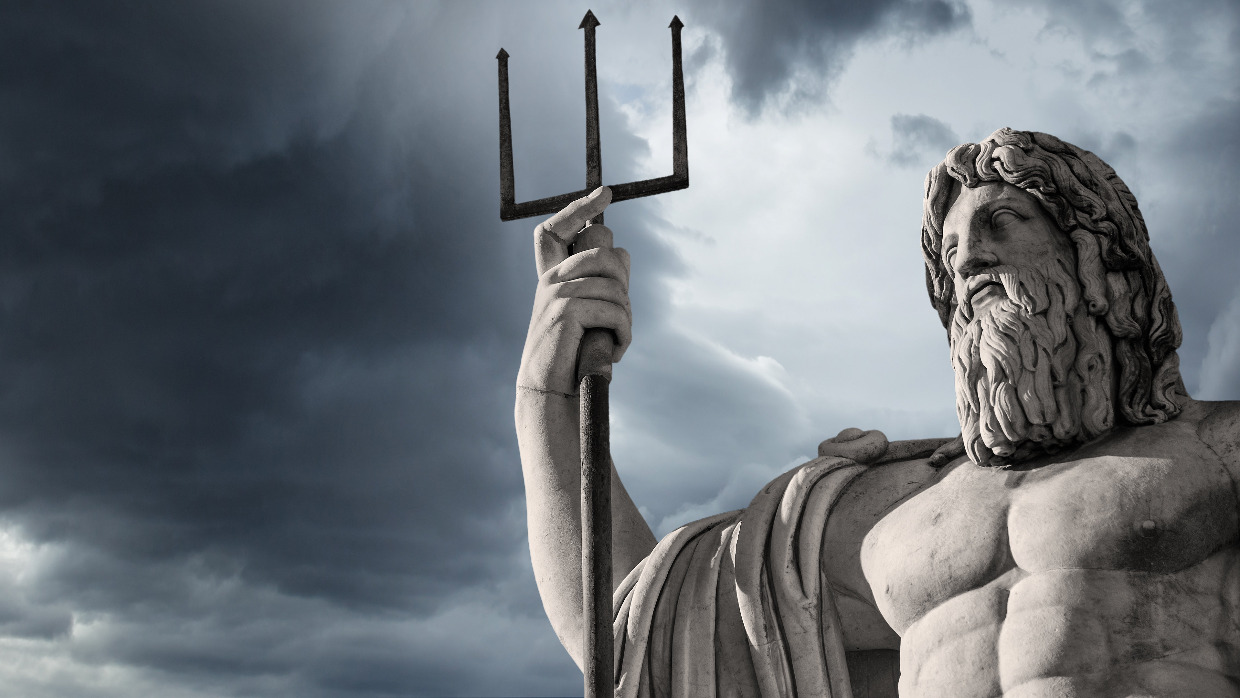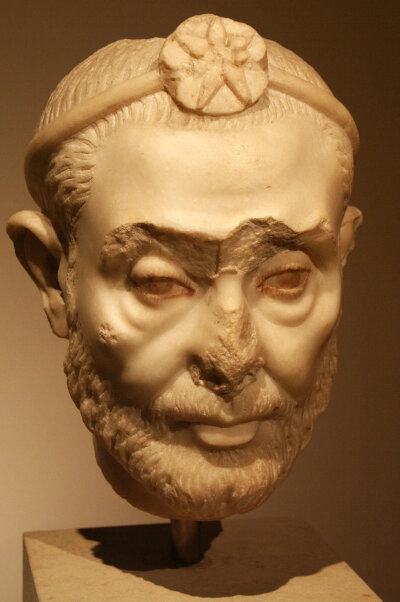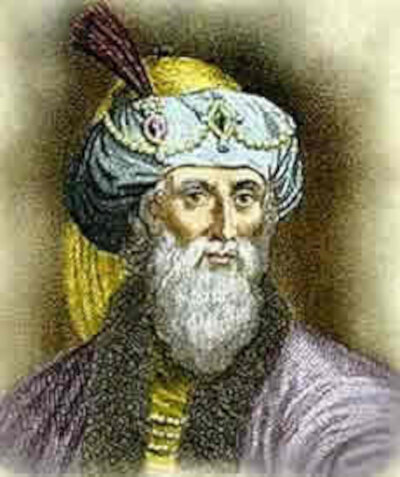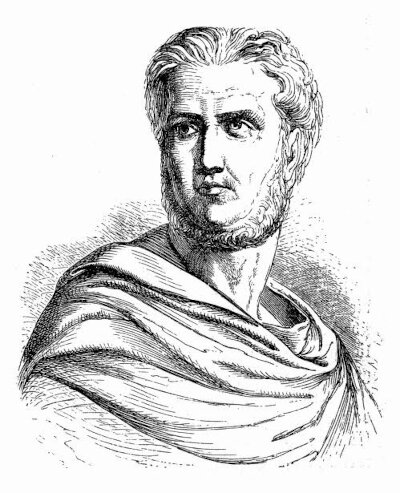 Vampire Weekend's Surprising Jewish Stories
Vampire Weekend's Surprising Jewish Stories


5 min read
Jewish beliefs and practices in the ancient world were unique and often attracted pagan scorn and hostility.
Antisemitism is one of the world’s oldest hatreds. It stubbornly persists into modern times. How did it start and where did it come from? That is difficult to answer.
The Talmud teaches that Sinai, the mountain where the Jews accepted the Torah, comes from the Hebrew word “sina,” which means “hatred.” After receiving the Torah at Mount Sinai, which gave concepts of morality, hatred of the Jews descended on the world.
No doubt Jews in the ancient world were viewed as different based on their unique belief systems. The 19th century German historian, Theodor Mommsen, claimed that Jew-hatred and agitations against the Jews were as old as the Jewish diaspora itselfi. Judaism was an abnormality in the ancient polytheistic worldii. Jews were sometimes blamed for the “anger of the gods” when natural disasters struck. They were seen as strange because they had no statues and worshipped an invisible deity. The Torah relates the fear and loathing of the ancient Egyptians towards the Israelites.
Judaism was an abnormality in the ancient polytheistic world.
Most pagans were willing to absorb new deities introduced by conquering armies. Jews as monotheists refused to do so. Dietary laws prevented Jews from eating with their pagan neighbors. Jews were considered lazy for not working on the Sabbath. While different cultures intermarried, absorbing each other’s idols, Jews remained separate. Jews were the ultimate nonconformists in a sea of paganismiii.
Scholars often called pagan hostility to Jews anti-Judaism rather than the more modern term antisemitism. But here, we will refer to hatred of Jews as antisemitism to avoid confusion.
The most numerous written sources of antisemitism in the pagan world came from the Greco-Roman period. This was a time after the Babylonian expulsions when many Jews lived outside the Holy Land in various diasporas and mixed with other cultures.
 Maetho
Maetho
One of the earliest antisemitic sources came from a Greek speaking Egyptian priest living in the early third century BCE named Manetho. Manetho wrote a history of Egypt, devoting a section to the Israelites and the Exodus. Much of Manetho’s writing has been lost but was referenced by the ancient Jewish historian Josephus.
 Josephus
Josephus
In his version of events, Manetho turned the Exodus story upside downiv. Instead of a tale of Jewish liberation from Egyptian slavery, Manetho wrote a scathing version where the Egyptian gods expelled the Israelites to purify Egypt. Before expulsion, the Jews under a rogue prince named Moses, terrorized the Egyptian people, and blasphemed their gods.
One of the larger ancient Jewish population centers was in Alexandria, Egypt. Alexandria was hub of learning, focused at the great ancient library of Alexandra. It was also the hub of much tension between Jews and pagans living there.
Once again from Josephus, we understand that a man named Apion was an official of the Alexandria library and wrote a scathing polemic against the Jews. Among his writings, Apion claimed the Jews of worshipping a donkey’s head in the Jerusalem Temple. Josephus spilled much ink defending Jews against the accusations of Manetho and Apion.
In a more chilling libel that would have serious implications through history, Apion accused Jews of kidnapping Greek children and offering them for human sacrifice in the Templev. Tensions between Greeks and Jews in Alexandria continued to simmer until war broke out between the two groups in 115 CE.
 Tacitus
Tacitus
The famous Roman historian Tacitus, devoted large segments of his writing to criticize Jewish practices. Tacitus lived at the time of the Second Temple and wrote his Histories decades after its horrific destruction. He wrote that the gods despised the Jews. Tacitus believed Jews hated everything held sacred by Rome. He called Jewish rites “sordid and ridiculous.” He claimed Jews were the “most despised people and basest of nations.” While many pagan writers and orators scorned Jews and Judaism, Tacitus’ polemic is particularly viciousvi.
There seemed to be several themes in pagan antisemitism, some of them still used against Jews in today. One theme was to malign the origins of Judaism. There were repeated attempts to downplay or degrade the events that led to the formation of the Jewish people and their attachment to the land of Israel.
Another form of attack alluded to what the pagan world perceived as the strangeness of Jewish practises. The concept of taking one day off each week for the Sabbath was seen as ridiculous, particularly when applied to the lower classes and slaves. That many Jews throughout the Roman Empire were poor only added to derision. Circumcision and abstaining from eating pork were also misunderstood and considered “barbaric.”
One area that especially stirred up hatred was proselytization. In later antiquity Jews did it with some success. Tacitus complained about Jewish proselytizing, warning that those who accept the Jewish faith “despise the fatherland.”vii Oddly, one of the accusations leveled against Jews was that they practised “atheism” and caused others to convert to these beliefs.
There is significant evidence to argue that ancient pagan antisemitism was widespread. The tragedy is that many pagan forms of antisemitism morphed and adapted through history. Christianity, Islam, and secular societies often built upon pagan hatreds and continued to use the same methods to attack Jews and Judaism.

There were "pagan" monotheisms too such as the Zoroastrians and the Pythagoreans. Also, statues were a late development in a lot of European pagan beliefs; originally they never made images of the gods.
I suspect the animus was not so much against the religious beliefs of Jews as much as it was about Jews distinct identity. If you're trying to build an empire and want everyone to think of themselves as "Roman" or so on, a group saying "but first we are Jews", makes that difficult, i.e; Jewish opposition to globalism/Babel.
Oversimplified, what Shiffer writes here about specific cases is true, but there were also prominent Pagans who admired the Jews and their practices. Jews were also fully accepted as an equal
religion in the multi religious Persian Empire that competed with Rome and Byzantium.
HOSTILITY BASED ON BELIEF OUGHT NOT BE LABELLED AS "ANTI-SEMITISM", EVEN IF IT WERE A BELIEF HELD EXCLUSIVELY BY AN INDIVIDUAL GROUPING. AN ANTI-SEMITIE WOULD HATE ISRAELITES [such as Jews, Levities, etc.], ARABS, ETHIOPIANS, ETC. NO MATTER THEIR THEOLOGICAL BELIEFS NOR POLITICAL PROCLIVIITIES.
Many of the information I agree with and is historically accurate. The only exception is Menotho. Menotho's work no longer exists. The only remaining work of his is commentary on Menotho's work that was written by Josephus, which is extremely flippant, biased, and severely lacks foundation. Making Josephus's work uncredible. I know this because I have a very old copy of this writing, and have read it. And people should really stop giving credibility to Josephus all together, he was an extremely dishonest man that was never trusted by Jews or the Romans, after he betrayed the Jews. And all his work lacks the foundations of facts, resulting in well written lies that people want to view as accurate historical accounts. So is it possible to read this article without these two sources?
This was a good article that explained how antisemitism started so soon and ran so deep!!
I’m learning about replacement theology from my Pastor and see it now everywhere. Which is why Christianity was invented.
See ESM. Us
Thank you.